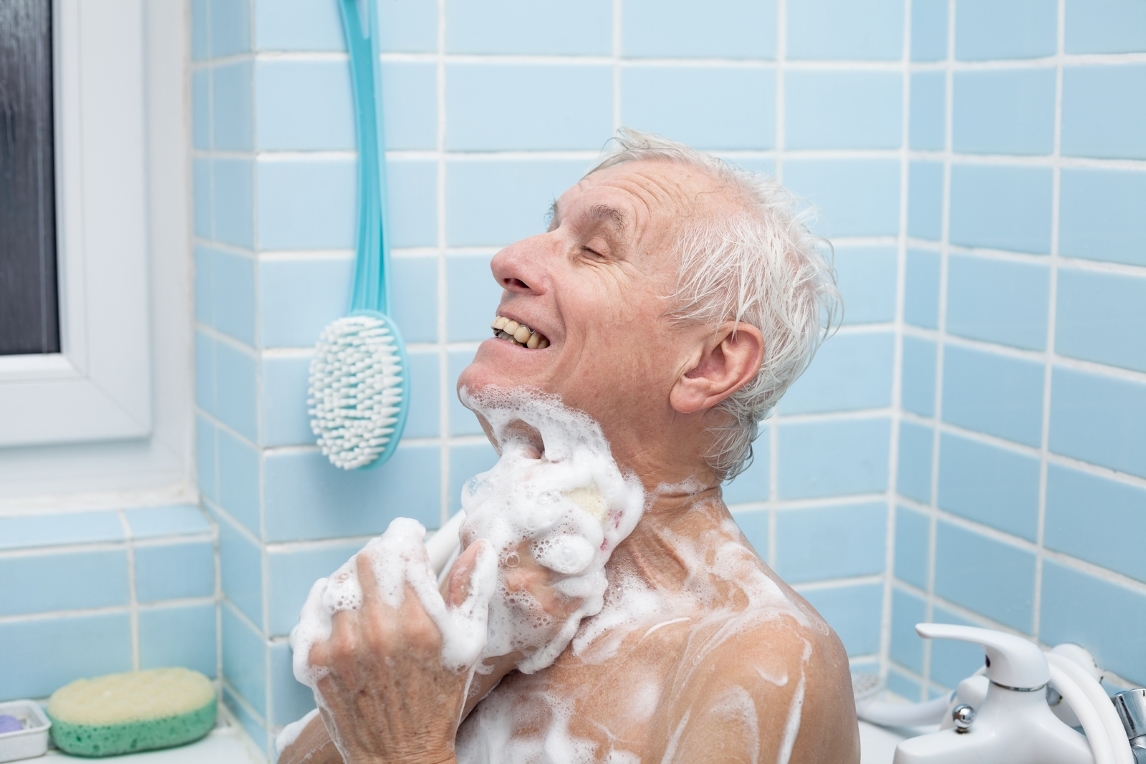Have you and your senior talked about hygiene and what you expect for her in terms of good hygiene? If not, it might be time for you to have that conversation with each other and get some ground rules in place.
Bathe a Few Times a Week
Bathing can easily become a battleground between you and your senior, but it doesn’t have to be. You might still think she needs to bathe every day, but she may want to do so far less often. If bathing is difficult for her, she may even need help from companion care at home to bathe safely. This is an area where you may both need to compromise. As long as your senior isn’t getting really sweaty or dirty, bathing a few times a week may truly be enough for her.
Wear Clean Clothes Daily
Even if she isn’t bathing every day, changing her clothes every day is a very good idea. Clothing can trap germs and shed skin cells against her skin and it can quickly become dirty and uncomfortable. Wearing fresh clothes every day can help her to feel fresh, too. Again, she may need some extra help with changing clothes, so help from elder care providers can be exactly the right answer.
Change Incontinence Products as Needed
If your elderly family member uses incontinence products, they need to be changed more often than she might realize. Even without an accident, leakage can mean that urine is trapped against her skin and that can cause rashes and sores. That’s why it’s so very important for her to stay on top of changing incontinence products. Help from caregivers can make it easier for her to keep up with how often she’s changed them.
Wash Sheets and Towels Frequently
Sheets and towels are another possible hygiene issue for your senior. Both can collect shed skin cells and can be dirtier than your senior realizes. But it can take a lot of energy for her to keep up with changing these out and doing the laundry as often as necessary. Companion care at home can relieve that burden for your senior and help her to have a clean and safe home.
Talk to your elderly family member about what you feel equates to good hygiene for her so that you can understand the difference between your points of view. From there you can take steps that bridge the gaps.

